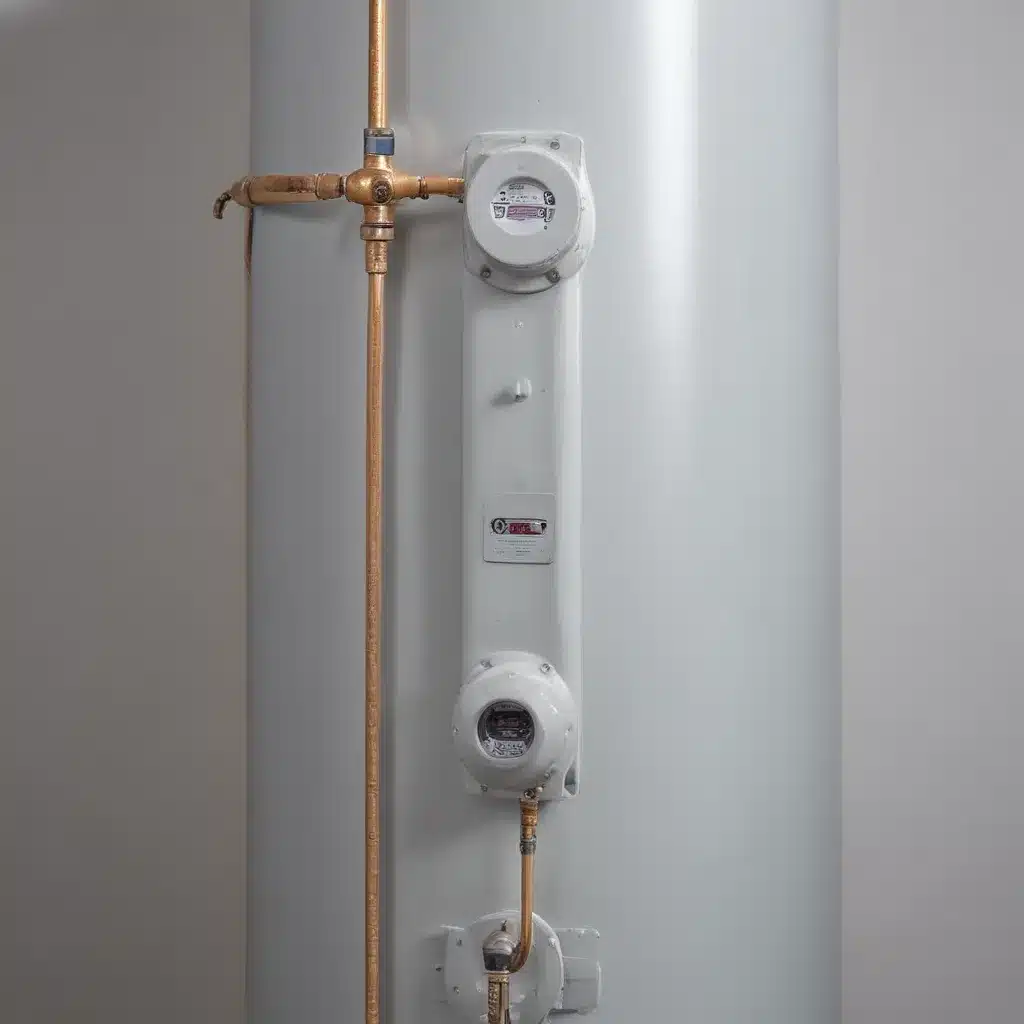
As an experienced water heater specialist, I understand the critical role that anode rods play in the longevity and performance of storage tank water heaters. These unsung heroes are responsible for protecting the interior of your water heater tank from the ravages of corrosion, which can significantly shorten the lifespan of your appliance. In this comprehensive article, we’ll explore the science behind anode rods, the signs of their depletion, and the steps you can take to prevent anode rod depletion and extend the life of your water heater.
Now, this might seem counterintuitive when dealing with water heaters…
Understanding Anode Rods
Anode rods, also known as “sacrificial anodes,” are essential components in any storage tank water heater. Typically made from aluminum, magnesium, or zinc, these rods are designed to attract and corrode instead of the water heater tank itself. This process, known as galvanic corrosion, is the key to their corrosion-prevention mechanism.
The anode rod acts as the more reactive metal in an electrochemical process, drawing corrosive elements in the water towards itself rather than the tank. As the anode rod gradually corrodes, it “sacrifices” itself to protect the water heater tank, which is the less reactive, or “cathode,” metal.
The choice of anode rod material depends on the water composition in your home. Aluminum rods are durable and ideal for hard water areas, while magnesium rods are more effective in softer water conditions. Zinc rods, often an aluminum rod with a small portion of zinc, are used primarily to combat sulfur smells in the water.
Monitoring Anode Rod Condition
Regularly inspecting the condition of your anode rod is crucial for maintaining the health of your water heater. Over time, the anode rod will gradually corrode and diminish in size, eventually needing replacement. Here are some key signs to watch for:
- Reduced rod diameter: As the anode rod corrodes, its diameter will decrease. If the rod is less than half its original size, it’s time for replacement.
- Red or brown discoloration: A discolored anode rod is a sign that it’s actively sacrificing itself to protect the tank.
- Visible deterioration: If the anode rod appears pitted, flaky, or has significant sections missing, it’s likely time for a replacement.
- Rotten egg smell: A sulfur-like odor in the water can indicate that the anode rod is depleted and needs to be replaced.
By regularly inspecting the anode rod, typically every 2-3 years, you can stay ahead of its depletion and take proactive steps to extend the life of your water heater.
Anode Rod Replacement
When the time comes to replace your anode rod, it’s essential to do so promptly to prevent further damage to the water heater tank. The process is relatively straightforward, but it’s important to follow the manufacturer’s instructions carefully and take appropriate safety precautions.
Here are the basic steps to replace an anode rod:
- Turn off the power or fuel supply to the water heater.
- Shut off the water supply to the tank and drain a few gallons of water to relieve pressure.
- Locate the anode rod, usually at the top of the tank, and use a socket wrench to remove it.
- Carefully insert the new anode rod and tighten it securely.
- Turn the water supply back on and refill the tank.
- Restore power or fuel to the water heater and double-check that it’s functioning properly.
While this process can be done as a DIY project, it’s generally recommended to have a professional plumber handle the replacement to double-check that it’s done safely and correctly. Improper installation can lead to leaks, damage, or even personal injury.
Preventing Anode Rod Depletion
In addition to regular inspections and timely replacements, there are several steps you can take to help prevent the depletion of your anode rod and extend the life of your water heater:
Maintain Water Quality
The composition of your water can significantly impact the rate at which the anode rod corrodes. Factors like pH levels, dissolved oxygen, and the presence of minerals and salts can accelerate the corrosion process. Consider installing a water softener or filter to improve water quality and reduce the strain on your anode rod.
Adjust Water Heater Settings
Keeping your water heater at the optimal temperature can also help extend the life of the anode rod. Excessive heat can accelerate corrosion, so try to maintain a temperature between 120-140°F. Additionally, regular flushing to remove sediment buildup can improve the overall efficiency and lifespan of your water heater.
Consider Powered Anode Rods
For homeowners looking for even more protection, there are alternatives to the traditional sacrificial anode rod. Impressed Current Cathodic Protection (ICCP) systems, also known as powered anode rods, use an external power source to create an electrical current that protects the tank without the need for a consumable anode. While more expensive upfront, these systems can significantly extend the life of your water heater.
Conclusion
Anode rods are the unsung heroes of your storage tank water heater, silently working to protect the interior of the tank from corrosion. By understanding their function, monitoring their condition, and taking proactive steps to prevent their depletion, you can dramatically extend the lifespan of your water heater and avoid costly repairs or premature replacements.
Remember, regular maintenance and prompt attention to any issues with your anode rod are the keys to ensuring your water heater provides reliable, energy-efficient hot water for years to come. For expert advice and professional water heater services, be sure to visit WaterHeaterPick.com for a wide range of resources and solutions.
Example: Addressing Leaks in Water Heaters 2023

